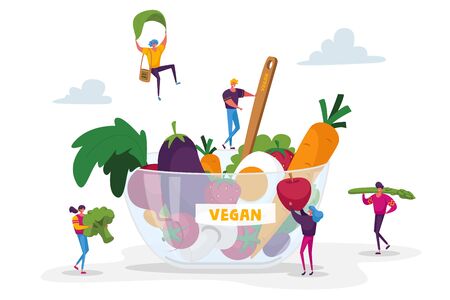1. Introduction to Vegan and Vegetarian Diets for Cats
As more people embrace plant-based diets for ethical, environmental, or health reasons, some pet owners wonder if their cats can also thrive on vegan or vegetarian food. While the idea of feeding cats a plant-based diet may seem appealing from an ethical standpoint, it raises significant concerns about feline nutrition and well-being.
Why Do Some Owners Choose Plant-Based Diets for Cats?
There are several motivations behind choosing a vegan or vegetarian diet for cats, including:
- Ethical Concerns: Some pet owners avoid animal products due to concerns about factory farming and animal cruelty.
- Environmental Impact: Meat production has a large carbon footprint, leading some to seek sustainable alternatives.
- Health Beliefs: Some believe that plant-based diets can offer health benefits for pets, though this is controversial.
Ethical Considerations of Feeding Cats a Plant-Based Diet
Cats are obligate carnivores, meaning they require specific nutrients found naturally in meat. This raises ethical questions about whether imposing a plant-based diet on them aligns with their biological needs. Here’s a comparison of key ethical considerations:
| Ethical Argument | Supporting View | Concerns |
|---|---|---|
| Reducing Animal Suffering | Avoiding meat prevents harm to farm animals. | Cats may suffer if they do not receive proper nutrition. |
| Environmental Sustainability | Plant-based diets have a lower environmental impact. | If cats become sick due to dietary deficiencies, veterinary treatments may offset sustainability gains. |
| Respecting Natural Diets | Cats can potentially survive on specially formulated plant-based diets. | Forcing a carnivorous species to eat plants may go against their natural biology. |
The Debate Around Vegan and Vegetarian Diets for Cats
The discussion around plant-based diets for cats is complex. While some argue that carefully formulated vegan cat foods can provide essential nutrients, others warn that such diets may not fully meet a cat’s needs. The decision ultimately requires careful research and consultation with veterinarians who specialize in feline nutrition.
Key Nutritional Challenges
Cats require specific nutrients such as taurine, arachidonic acid, and vitamin B12—primarily found in animal sources. Without these nutrients, cats can develop severe health problems, including heart disease and vision loss.
Next Steps in Understanding Vegan and Vegetarian Diets for Cats
If youre considering a plant-based diet for your cat, its important to explore all aspects, including potential risks and alternative solutions. In the next section, well dive deeper into the nutritional requirements of cats and whether plant-based diets can truly meet these needs.
2. Biological and Nutritional Needs of Cats
Cats are obligate carnivores, meaning their bodies are biologically designed to derive essential nutrients from animal-based sources. Unlike omnivores, such as dogs or humans, cats have specific dietary requirements that make plant-based diets challenging to implement without serious risks to their health.
Understanding the Obligate Carnivore Nature of Cats
Cats have evolved to rely primarily on meat for survival. Their digestive systems lack the necessary enzymes to efficiently process plant-based proteins and extract all essential nutrients from them. This makes it difficult for cats to thrive on a vegetarian or vegan diet without significant supplementation.
Essential Nutrients Cats Require
To maintain optimal health, cats need several key nutrients that are naturally found in animal products. Some of these nutrients include:
| Nutrient | Why Its Essential | Natural Sources |
|---|---|---|
| Taurine | Critical for heart function, vision, and immune health | Meat, especially organ meats like heart and liver |
| Arachidonic Acid | Supports skin health, kidney function, and reproduction | Poultry fat, fish oil, and other animal fats |
| Vitamin A (Retinol) | Essential for vision, immune function, and skin health | Liver, eggs, and animal-based food sources |
| Vitamin B12 | Nerve function, red blood cell production, and metabolism support | Animal tissues such as meat, fish, and dairy products |
| Protein (Animal-Based) | Aids in muscle maintenance, energy production, and overall development | Poultry, beef, fish, and eggs |
The Challenges of Plant-Based Diets for Cats
A vegan or vegetarian diet may struggle to provide these essential nutrients naturally. While synthetic supplements can be added to plant-based cat foods, they may not always be absorbed as effectively as their natural counterparts. Additionally, imbalances in amino acids or fatty acids can lead to serious health issues over time.
The Issue with Taurine Deficiency
Taurine is a prime example of why a plant-based diet is risky for cats. Unlike humans or dogs who can synthesize taurine from other amino acids, cats must obtain it directly from animal protein. A deficiency in taurine can lead to severe consequences such as heart disease (dilated cardiomyopathy), blindness due to retinal degeneration, and weakened immune function.
The Digestive System Limitation
Cats short digestive tracts are optimized for processing meat efficiently. Plant-based foods often contain fibers and carbohydrates that cats cannot digest properly. This can result in gastrointestinal issues such as bloating, diarrhea, or nutrient malabsorption.
The Bottom Line on Meeting a Cat’s Nutritional Needs
If considering a plant-based diet for your cat, it’s crucial to consult with a veterinarian specializing in feline nutrition. Simply replacing meat with plant proteins is not enough—proper supplementation is required to prevent nutritional deficiencies. However, even with supplements, long-term effects on feline health remain uncertain.
![]()
3. Potential Health Risks and Benefits
When considering a vegan or vegetarian diet for cats, its crucial to understand the potential health risks and benefits. Cats are obligate carnivores, meaning their bodies are naturally designed to thrive on animal-based proteins. Removing these from their diet can lead to nutritional deficiencies if not properly managed.
Health Risks of a Plant-Based Diet for Cats
A plant-based diet lacks several essential nutrients that cats need for survival. Without proper supplementation, cats may experience serious health issues. Here are some common risks:
| Nutrient Deficiency | Potential Health Issues |
|---|---|
| Taurine | Heart disease, vision problems, immune dysfunction |
| Arachidonic Acid | Poor skin health, reproductive issues |
| Vitamin B12 | Nerve damage, digestive problems, lethargy |
| Iodine | Thyroid dysfunction |
| Protein Deficiency | Muscle loss, weakened immune system |
The Role of Supplementation
If feeding a cat a vegan or vegetarian diet, supplementation is necessary to prevent deficiencies. Synthetic taurine, vitamin B12, and other essential nutrients must be added to ensure a balanced diet. However, even with supplementation, some veterinarians argue that plant-based diets may not fully meet all of a cat’s biological needs.
The Veterinary Perspective
The majority of veterinarians caution against feeding cats a vegan or vegetarian diet due to the risk of malnutrition. While there are commercial vegan cat foods available that claim to be nutritionally complete, many vets recommend regular blood tests and close monitoring to ensure a cat remains healthy on such a diet.
A Balanced Approach
If you are considering transitioning your cat to a vegan or vegetarian diet, consulting with a veterinarian is essential. A carefully planned approach with appropriate supplements may help mitigate risks, but owners should closely monitor their cat’s health and well-being.
4. Ethical Considerations and Animal Welfare
Feeding cats a vegan or vegetarian diet raises ethical questions that pet owners must carefully consider. While many people choose plant-based diets for themselves due to ethical concerns about animal welfare, applying the same principles to obligate carnivores like cats can be challenging.
Balancing Ethics with Responsibility
Many pet owners adopt a vegan or vegetarian lifestyle to avoid contributing to animal suffering. However, cats have evolved as obligate carnivores, meaning their bodies require nutrients found primarily in animal products. This creates an ethical dilemma: should a pet owner prioritize their personal beliefs or the biological needs of their cat?
The Well-being of Your Cat
The primary responsibility of any pet owner is to ensure the health and well-being of their animal. A cat’s diet must provide essential nutrients such as taurine, vitamin D3, and arachidonic acid, which are naturally found in meat. Without these nutrients, cats can develop serious health issues.
Key Nutrients for Cats
| Nutrient | Importance | Main Natural Source |
|---|---|---|
| Taurine | Essential for heart and eye health | Animal tissues (meat, fish) |
| Arachidonic Acid | Cats cannot synthesize it; needed for skin and organ function | Animal fats |
| Vitamin D3 | Aids in calcium absorption and bone health | Animal-based sources (fish, liver) |
| Vitamin B12 | Nerve function and energy production | Animal-derived foods |
The Impact on Animal Welfare Beyond Your Cat
A common argument for feeding cats a plant-based diet is reducing harm to other animals in the food industry. However, producing synthetic supplements and plant-based alternatives also has environmental impacts. Ethical considerations should include both the direct care of a pet and the broader implications of dietary choices.
Navigating the Ethical Dilemma
If you are committed to avoiding animal products but also want to provide optimal care for your cat, consider consulting a veterinarian who specializes in feline nutrition. Some commercial vegan cat foods exist with added synthetic nutrients, but their long-term effects are still debated among experts.
The challenge is finding a balance between ethical beliefs and ensuring a cat’s nutritional needs are met. Before making any dietary changes, it’s essential to research thoroughly and seek professional advice.
5. Alternatives to Vegan and Vegetarian Diets
For cat owners who are concerned about the ethics of feeding traditional meat-based diets but recognize the nutritional challenges of plant-based options, there are several alternatives worth considering. These options aim to balance ethical concerns with the dietary needs of obligate carnivores like cats.
Ethically Sourced Meat
One way to address ethical concerns while ensuring proper nutrition for your cat is by choosing ethically sourced meat. This means selecting products from farms that prioritize humane treatment of animals, sustainable farming practices, and minimal environmental impact.
Benefits of Ethically Sourced Meat
- Animals are raised in humane conditions.
- Farms often use sustainable and environmentally friendly methods.
- Reduces support for factory farming practices.
Challenges
- Can be more expensive than conventional pet food.
- Availability may be limited depending on location.
Lab-Grown Meat
An emerging alternative is lab-grown or cultivated meat, which is produced from animal cells without the need for raising or slaughtering animals. This technology has the potential to provide a cruelty-free and nutritionally complete protein source for cats.
Potential Benefits of Lab-Grown Meat
| Benefit | Description |
|---|---|
| Cruelty-Free | No animals are harmed in production. |
| Nutritionally Complete | Contains real animal proteins essential for cats. |
| Sustainable | Lowers environmental impact compared to traditional meat production. |
Challenges
- The technology is still developing and not widely available.
- Might be more expensive initially compared to regular pet food.
Insect-Based Protein Diets
An alternative gaining traction is pet food made from insect protein, such as crickets or black soldier fly larvae. These provide high-quality protein while being more sustainable than traditional livestock farming.
Why Consider Insect-Based Protein?
- Nutrient-rich and easily digestible for cats.
- Sustainably farmed with a lower carbon footprint.
- Avoids some of the ethical issues associated with traditional meat production.
The Best Choice for Your Cat
If youre looking for an alternative to standard meat-based diets, exploring these ethical options can help align your cat’s diet with your values. However, it’s always important to consult with a veterinarian before making any significant dietary changes to ensure your cat receives all the essential nutrients they need to thrive.


